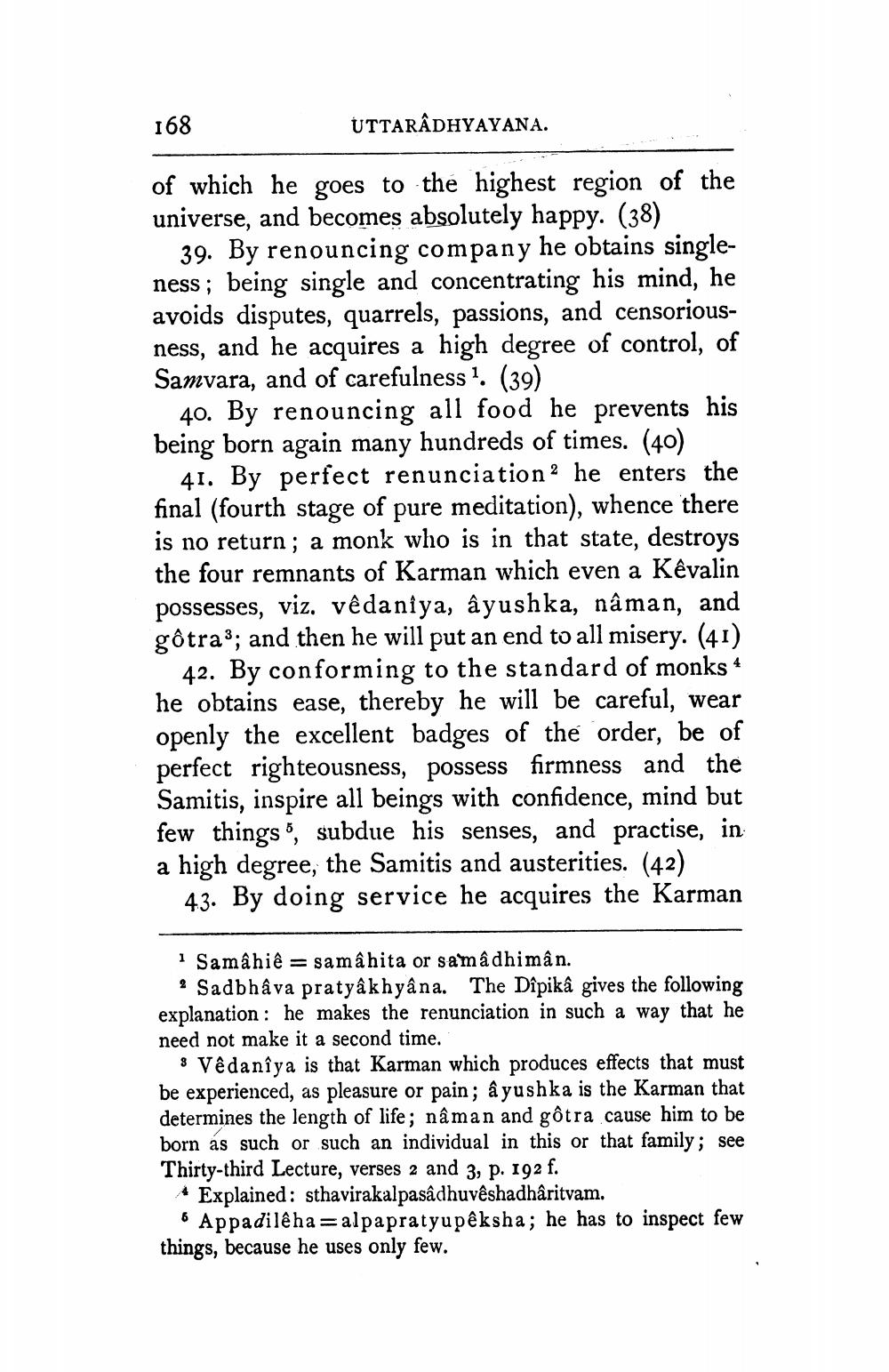________________
UTTARADHYAYANA.
of which he goes to the highest region of the universe, and becomes absolutely happy. (38)
39. By renouncing company he obtains singleness; being single and concentrating his mind, he avoids disputes, quarrels, passions, and censoriousness, and he acquires a high degree of control, of Samvara, and of carefulness 1. (39)
40. By renouncing all food he prevents his being born again many hundreds of times. (40)
41. By perfect renunciation2 he enters the final (fourth stage of pure meditation), whence there is no return; a monk who is in that state, destroys the four remnants of Karman which even a Kêvalin possesses, viz. vêdaniya, âyushka, nâman, and gôtra3; and then he will put an end to all misery. (41)
42. By conforming to the standard of monks * he obtains ease, thereby he will be careful, wear openly the excellent badges of the order, be of perfect righteousness, possess firmness and the Samitis, inspire all beings with confidence, mind but few things, subdue his senses, and practise, in a high degree, the Samitis and austerities. (42) 43. By doing service he acquires the Karman
168
1 Samâhiê
samâhita or samâdhimân.
Sadbhâva pratyâkhyâna. The Dîpikâ gives the following explanation: he makes the renunciation in such a way that he need not make it a second time.
3 Vêdanîya is that Karman which produces effects that must be experienced, as pleasure or pain; âyushka is the Karman that determines the length of life; nâman and gôtra cause him to be born as such or such an individual in this or that family; see Thirty-third Lecture, verses 2 and 3, p. 192 f.
Explained: sthavirakalpasâdhuvêshadhâritvam.
Appadilêha = alpapratyupêksha; he has to inspect few things, because he uses only few.




